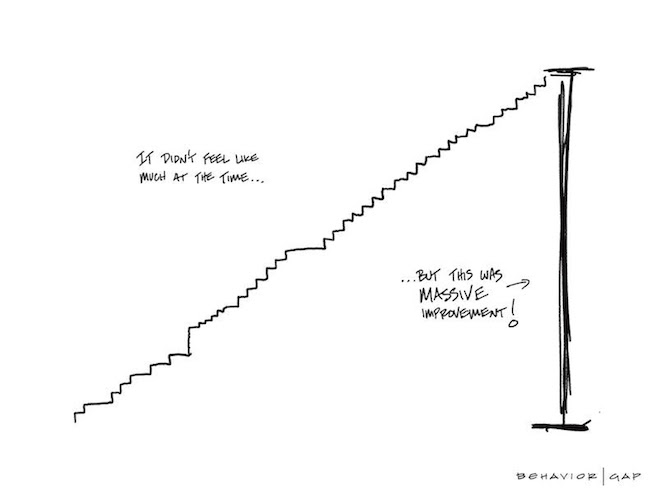Details Are Part of Our Difference
Embracing the Evidence at Anheuser-Busch – Mid 1980s
529 Best Practices
David Booth on How to Choose an Advisor
The One Minute Audio Clip You Need to Hear
Tag: NYT; New York Times
Fiduciary or Broker? The Glaring (and costly) Difference.

Sometimes you can’t shake a story because it keeps getting replayed in different forms. You might remember a piece in the NYT written a couple of years ago about a woman who stumbled upon gross misuse of her parent’s retirement money. Her parents’ brokers were mishandling the money for years, to their benefit – one stock had even been sold eight times in the same day, racking up enormous trading fees. It sounds shocking, but unfortunately, it’s an old story that bears repeating. Why? Sometimes we need reminding – employing a fiduciary advisor matters. “Fiduciary” means your advisor is legally bound to work in your best interest. Ask if your broker, or your parent’s broker, is held to this standard. Do you have a fiduciary advisor like Hill Investment Group?
The Magic of Incremental Change

HIG friend, podcast guest, and NYT columnist, Carl Richards, shared the following story about how incremental change adds up if you take the long view. Keep reading for the story behind the sketch.
The Magic of Incremental Change
Back when I lived in Las Vegas, I used to ride road bikes with a semi-competitive group of riders. I remember when I first joined the group, it felt like a big victory if I could just keep up with them for the first 15 minutes. After a while, that became the first half-hour. Then an hour. One day, almost without even noticing it, I was suddenly able to stick with the pack for the entire ride.
It felt sudden at the time, but of course, it wasn’t. And although I was surprised, nobody else was, because they had all seen it before with other riders or experienced it themselves.
This is the sneaky power of incremental change.
Each day, you make a small improvement. Then, that becomes the new normal, and you get used to it. You make a small improvement again, and then that becomes the new normal. This happens over and over, slowly but surely. We barely notice we are getting closer to our goal, and then (again, seemingly “all of a sudden”) we’re there!
I didn’t feel a lot faster because I wasn’t a lot faster… compared to yesterday or even last week. In fact, I was just a little faster than I was last month. But month after month, ride after ride, it all added up. All those little bits of “faster” started to compound on top of one another.
Of course, this doesn’t just apply to riding bikes. I’ve had times in my career where I wondered if I was accomplishing anything. I specifically recall a time when I was working remotely for a large company. I got very little feedback on my work and was largely left alone. I loved the independence, but I also struggled because I had no idea if what I was doing was valued by the people I worked for.
To deal with this struggle, I started reviewing each week and noting what I had done. It felt weird at first because I didn’t want it to be seen as taking credit for things, but as the weeks added up and the list got longer, it felt good. I was doing stuff, and that stuff was making a difference, for sure.
No one else needed to see the list. It still felt good. It helped me to see, in real-time, how incremental changes add up.
If you build a process of reflecting every quarter, month, and year, you’ll never feel like you’re not accomplishing anything again. And while that may spoil some of the surprise of suddenly and unexpectedly arriving at your goal one day, I promise it will be worth it to feel much better along the way.
-Carl Richards
A Quote We Love

We love this quote from David Booth, Founder and Executive Chairman of Dimensional Fund Advisors and endorser of Odds On by Matt Hall. Check out more of what Booth had to say in yesterday’s New York Times piece “Forget Stock Market Forecasts. They’re Less Than Worthless.”

